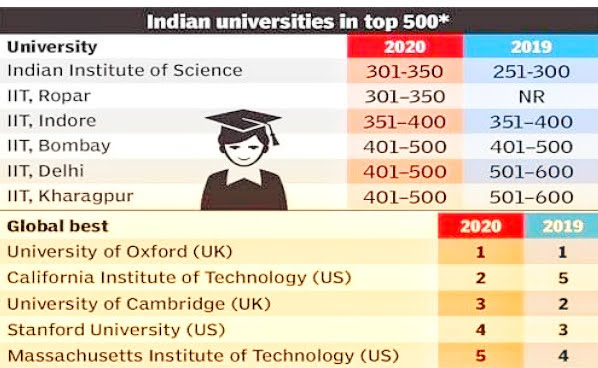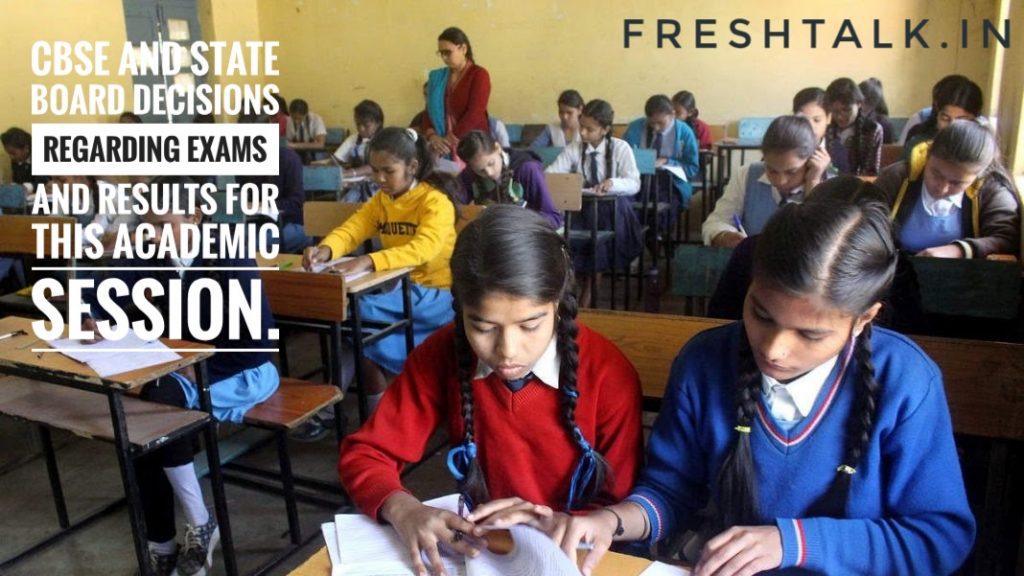The Times Higher Education Ranking also known as The Times Higher Education World
University Rankings is a list of more than 1,400 universities across 92 countries, including India which makes it the largest and most diverse university rankings as it takes into account all brilliant universities all over the world.
“Parameters for ranking”
Times Higher Education world rankings take into account 13 parameters that “measure an institution’s performance across teaching, research, knowledge transfer and international outlook”. While the first 200 institutes are individually ranked, the others are placed in brackets, such as 251-300 and 401-500.
“Indian universities ranking”
However, last year, none of India’s leading universities made even the Top 200 best universities which lead to the leaders of the Indian educational institutions to question the criteria of selection and raise questions regarding transparency. Many of the top universities in India were beaten by upcoming and fairly newer educational institutions.
“IITs demand clarification”
One of the best universities in India, the Indian Institue of Technology (IIT) which is renowned all over the country as being the finest institutions in the field of engineering states that it will not participate in the Times Higher Education Rankings 2020. Seven of the leading branches refused to submit their applications including IIT Delhi, Guwahati, Kanpur, Kharagpur, Madras, Roorkee as stated by the institution in a joint statement. Last year, IIT-Indore (351-400) was ahead of its older counterparts like IIT-Bombay, IIT-Delhi, and IIT-Kharagpur (401-500), yet remained far from the Top 200.
Due to their exclusion, the older branches of the infamous IIT informed the Ministry of Human Resource Development (HRD) regarding their complaints. They further added that they might approach the government to file an official complaint against the authorities of the Times Higher Education who compile the list.
The joint statement further elaborated that they will reconsider their decision to not participate from next year if the Times Higher Eduction group is able to convince the university of their parameters and transparency in the ranking process. The IIT-Delhi Director Ramagopal Rao stated that their methodology of the rankings was non-transparent and unclear.

“HRD Response”
This complaint to the Human Resource Development authorities was met by an unsatisfactory response as the IITs were told to look at the rankings and the parameters as a means to improve themselves rather than demanding clarification and opposing the system.
“Push by the Government to achieve excellence”
According to a study conducted by IIT-Delhi in 2019, the Modi government’s ranking system known as the National Institutional Ranking Framework (NIRF) was far more accurate and transparent in its ranking processes and criteria as compared to the surveys conducted by the Quacquarelli Symonds (QS) and Times Higher Education, both of which are renowned world over as the most prominent surveys. The NIRF launched in 2015, aims to develop institutes of eminence and pushes them to be recognized on the international platform and was a major step towards ensuring that Indian universities come to be recognized in global surveys.
While the government pushes the NIRF, it has also initiated a program which allows
international students and teachers to become a part of Indian institutes in hopes that this will boost their global rankings as many surveys take into account the diversity of the university according to the international faculty ratio and international student ratio.

